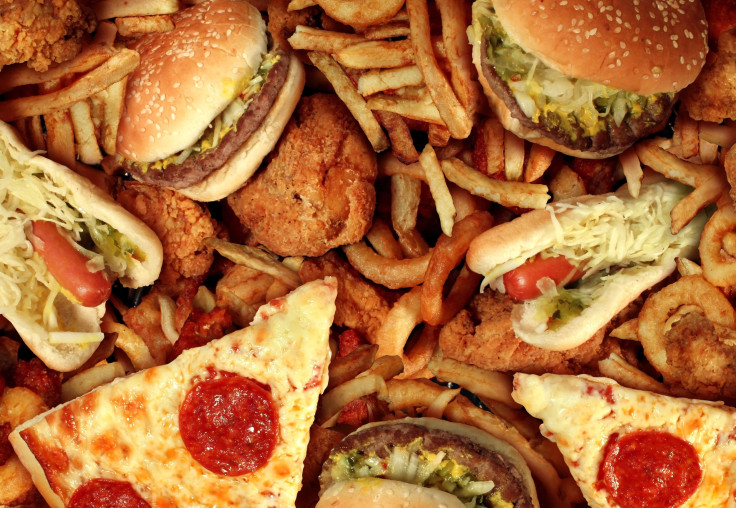Fasting And Cheat Days Provide Health Benefits, May Reverse Obesity And Type 2 Diabetes

Fasting may be the key to reversing the effects of obesity and type 2 diabetes. In a new study, published in the journal Cell Metabolism, California scientists starved their mice and then fed them junk food, and found that not only did the fasting help balance the bacteria in their gut, but the cheat days also helped keep their metabolism in check so that it didn’t slow down too much.
"We found that animals fed within a window of 8 to 12 hours had a number of protective and therapeutic health benefits compared with animals allowed to eat the same number of calories from the same food source at any time," said the study’s lead author Dr. Satchidananda Panda, of the Salk Institute for Biological Studies, in a press release. The team took two different approaches to examining how the starve-and-binge diet works overtime and in their guts.
Researchers cut off their obese and diabetic lab mice’s access to food for up to 12 hours each day during the week, and then fed them a variety of high-fat and high-sugar foods during the weekend. The mice were allowed to eat as much junk food, whenever they wanted on cheat days, yet obesity- and diabetes-related effects stopped, and even reversed. Fasting throughout the week and then eating whatever you want on the weekends sounds like the experiment is bringing a “balanced diet” to a whole other level.
Scientists wanted to take a closer look at the effects of these abnormal eating patterns. In a second study, they examined the gut bacteria responsible for changing the metabolism. When the mice became obese, their metabolism and all of their gut bacteria changed. But when they were subjected to periods of fasting, healthy bacteria was partially restored.
The fast and binge cycle is an interesting diet strategy to implement, however, it was only practiced in mice, and humans are a little smarter. We have leptin and ghrelin, known as the hunger hormones in our bodies. Leptin is a hormone made by fat cells to decrease your appetite, while ghrelin releases hormones in the stomach to increase your appetite when your brain signals you’re hungry, according to WebMD. Have you ever gotten really hungry right before you know you’re going to eat? When your body anticipates food, ghrelin increases significantly in your stomach. The mice probably weren’t watching the clock, or able to predict when they’d be fed, making it difficult to gauge how their stomachs would compare to ours.
“The effect of eating time to nudge the gut microbiome, and host physiology towards health or disease without altering genes, nutrients, calories, or drugs opens new research avenues and cost-effective health-care strategies,” Panda said. "For biologists, this offers a novel paradigm to understand the etiology of metabolic diseases and undesirable gut microbiomes in modern lifestyles marked with erratic eating patterns."
Source: Panda S, Chaix A, Zarrinpar A, and Miu P. Time-Restricted Feeding Is a Preventative and Therapeutic Intervention against Diverse Nutritional Challenges. Cell Metabolism. 2014.
Published by Medicaldaily.com



























